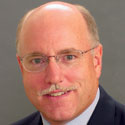11:20 AM
5 Questions About Faster Payments in the US
Many banks are facing a stark reality: Customers are looking more and more for ways to process and send transactions in real-time. As reports of other countries’ experiences with faster payments roll in, US banks are taking a long look at what a UK-style Faster Payments model could mean for them.
1. Is a Faster Payments model inevitable in the US?
We say yes for several reasons. One, we live in a speeded-up world that abhors delays of any sort. Two, what has taken place in the UK and other countries has been instructive, even allowing for the vast differences between our markets and payment systems. Three, the Federal Reserve is pushing to make it feasible, much the way it helped make the conversion from paper checks to electronic. And four, the banks themselves recognize how much customers and tech companies would value faster payments.
2. What can US banks learn from the UK Faster Payments scheme?
It was a highly cooperative venture among competitors, and it has yielded a particularly strong governance model and a membership structure that promotes growth. That represents several years of focused energy by top payment leaders and innovators in the United Kingdom. If experience is the best teacher, then US banks can draw on a lot of it, even if it’s hardly a perfect match with the environment.
3. What are the security implications of faster payments in the US?
It’s not an indictment of the concept to say faster payments would certainly attract fraudsters, and we might see fraud rise at first until we batten down the hatches. As any bank representative in the UK can tell you, following the launch of Faster Payments, they saw fraud rise sharply the first year, then slightly in the second year, and then decrease in subsequent years, almost down to pre-launch levels.
4. What might US banks do differently to prevent fraud?
They might decide to dictate rules that in the UK had been left up to banks. For example, while the UK banks operate to very strict security standards, the Faster Payments scheme did not mandate a common approach to how customers identify and validate themselves when initiating payments through their digital platforms. Also, while the Faster Payments scheme has a threshold of £100,000, individual banks were left to set their own value limits for their consumer and corporate customers.
5. How do US bankers describe their security concerns about faster payments?
One particular bank security chief said what many are thinking: “First, how do you identify that the person attempting the payment transaction is indeed who they say they are. One single kind of authentication won’t satisfy us; we’ll want to see some device-based authentication along with a bio-security measure of some kind. Second, once they are inside the firewall making the transaction, how do you make sure they can quickly and seamlessly get access to what they need but only what they need? Let’s face it, there’s safety in friction. There’s safety in latency, and that’s what we’re going to give up, so we need to replace it with a different kind of control -- control over what they can see.”
Bob Olson is a Vice President at Unisys where he manages the Global Financial Services Practice.He works with clients by providing a portfolio of IT services, software, and technology to help them solve their mission-critical problems. Prior to Unisys, Bob was ... View Full Bio



















